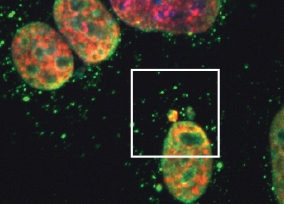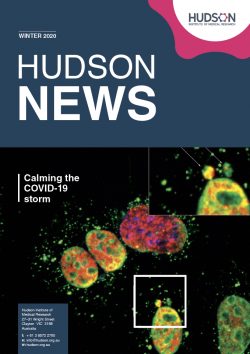Sepsis is a hyper-acute inflammatory response leading to life-threatening organ dysfunction.

Sepsis is usually caused by bacterial infections; however, the COVID-19 pandemic illustrates that hyper-acute inflammation can also be part of viral infections. Many critical COVID-19 patients develop dangerous levels of hyper-acute inflammation, and this is associated with a high death rate.
The Nucleic Acids and Innate Immunity research group, headed by Dr Michael Gantier, is looking for treatments to help prevent chronic and hyper-acute inflammation.
Nucleic acids are the root cause of toxic inflammation in chronic diseases like lupus, or acute sepsis. This team is working with potential drugs targeting inflammation driven by nucleic acids, by validating the anti-inflammatory properties of these drugs in preclinical models of sepsis and chronic inflammation.
How we are tackling acute inflammation
- Selection of molecules that can be quickly repurposed as anti-inflammatory drugs to prevent chronic inflammation and sepsis
- Development of new treatments that build on ‘good’ inflammation to help the body’s immune system successfully fight pathogens and cancer
- Understanding how chronic inflammation driven by nucleic acids controls cancer development.
Why do we need to research life-threatening inflammation?
“It is clear that the world is not prepared to deal with the number of ARDS patients generated by COVID-19,” Dr Gantier said.
The body’s immune response to some infections can be toxic to patients, damaging major organs. This triggers a chain of responses that can ultimately result in organ failure and death.
“In critical COVID-19 patients, the progression from ARDS to death directly relates to out-of-control inflammation from damaged tissues,” Dr Gantier said. “This progression is slow (over a week), allowing a window of opportunity to prevent the inflammatory storm and protect these patients. This is a primary focus for us.”
Dr Michael Gantier
Research Group Head, Nucleic Acids and Innate Immunity
Funders | Further funding is needed to pursue research into validating the drugs identified by this lab, to treat diseases driven by chronic and acute inflammation.

